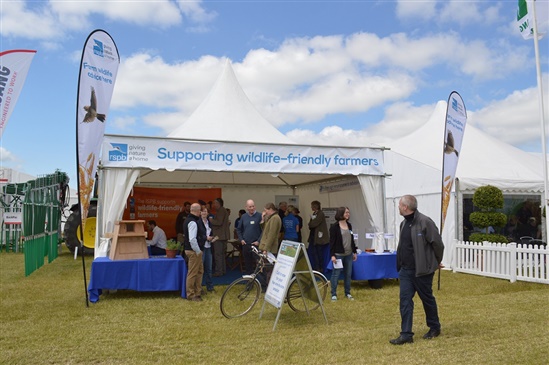Most folk involved in arable farming will either have visited or know of Cereals, one of Europe’s premier agricultural shows. This year the show was held on 10-11th June at Boothby Graffoe, and the RSPB hosted a stand along with approximately 1000 other exhibitors.

Picture 1: RSPB Stand at Cereals 2015. (Anna Broszkiewicz).
With so much to grab visitors attention, we had to stand out, and our star attraction…